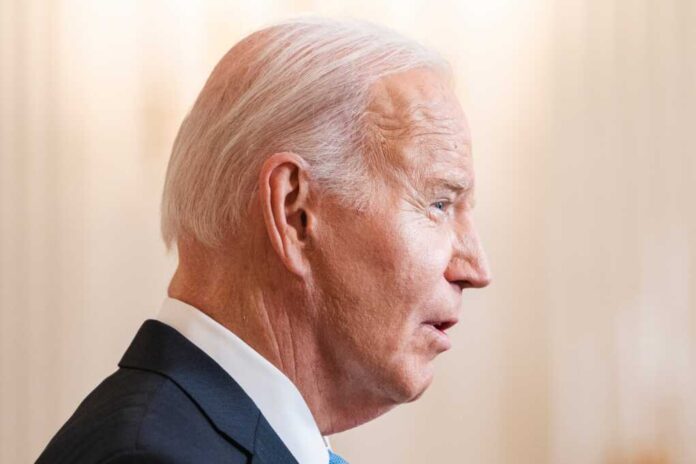
President Joe Biden lost the caucus in American Samoa during this week’s ‘Super Tuesday’ nominating contests. While the territory only represents six delegates towards the nomination, it was the first time that an incumbent president lost a nominating contest in more than 40 years.
President Joe Biden won most of Tuesday’s caucuses, which allowed him to secure a majority of delegates needed for the Democratic nomination. However, the president lost the caucus in American Samoa to outsider Jason Palmer.
Palmer received 51 votes in the caucus, while Biden received 40. Palmer will receive four of the six delegates from the territory. Rep. Dean Phillips (D-MN), who exited the Democratic Party contest for the nomination Wednesday, received zero votes.
Palmer entered into the race despite little political experience. He previously worked with Microsoft and the Bill & Melinda Gates Foundation.
Palmer has called for changes to the federal government’s technology policy and argued for a ceasefire in the ongoing war between Israel and Hamas. He also called for a path to citizenship for people brought to the country illegally by their parents as children.
Palmer’s victory came despite never visiting the island territory. He campaigned for the caucus over Zoom before receiving the majority of the vote there.
Biden just lost the American Samoa Democratic Caucus to a guy who campaigned via Zoom and had "never visited the territory before the caucus": https://t.co/gEAU6HYRA7 pic.twitter.com/ioJ0gA2e3F
— Nate Hochman (@njhochman) March 6, 2024
The Pacific territory has had some unique results in recent years. In 2020, former Rep. Tulsi Gabbard (D-HI), who is of partial native Hawaiian descent and Biden both lost the caucus there to former New York City Mayor Michael Bloomberg (D) in the Democratic caucus.
Furthermore, Biden’s defeat represents the first time an incumbent president lost a state or a territory to a challenger since 1976. That year incumbent President Gerald Ford lost a number of contests to future President Ronald Reagan.
Ford’s loss of multiple states to the California governor and the relative closeness of the nominating contest underscored the closeness of the general election that year. Ford would narrowly lose the general election to future President Jimmy Carter in November.














